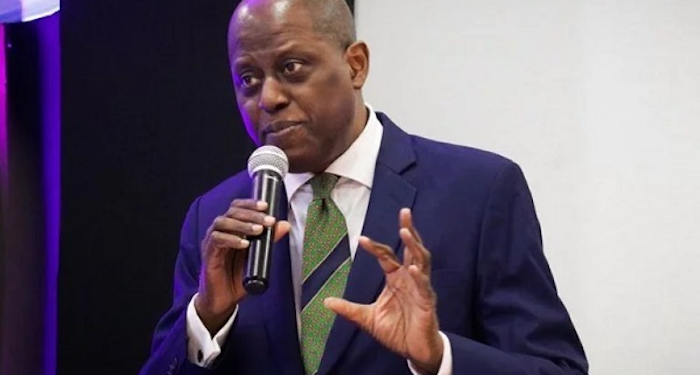The Governor of the Central Bank of Nigeria (CBN), Olayemi Cardoso, struck an optimistic tone on Sunday, emphasizing a positive outlook for Nigeria’s economy despite prevailing challenges. His remarks followed a recent influx of $1.8 billion into the country, signaling potential revitalization.
Cardoso’s sentiments contrasted with the concerns voiced by various stakeholders, highlighting divergent views on Nigeria’s economic trajectory. While Secretary to the Government of the Federation (SGF), Senator George Akume, expressed confidence in a brighter future, others, including the Catholic Bishops of Nigeria and former Vice President Atiku Abubakar, raised apprehensions about the nation’s economic hardships and governance issues.
Acknowledging the multifaceted challenges, including currency devaluation and inflationary pressures, Cardoso underscored ongoing policy reforms aimed at stimulating economic growth. He pointed to international endorsements from entities like the International Monetary Fund (IMF) and Fitch Ratings, bolstering Nigeria’s economic credibility.
The CBN governor emphasized the necessity of transitioning from a consumer-driven economy to a producer-oriented one, advocating for reduced reliance on imports to alleviate pressure on the foreign exchange market.
Meanwhile, SGF Akume outlined governmental interventions aimed at mitigating hardships, promising forthcoming reductions in transportation costs and commodity prices. Despite criticisms, Akume lauded the administration’s efforts in addressing inherited socio-economic challenges and enhancing Nigeria’s global competitiveness.
In response to the Catholic Bishops’ concerns, particularly regarding economic reforms and insecurity, President of the Catholic Bishops Conference of Nigeria (CBCN), Most Rev. Lucius Iwejuru Ugorji, called for a reevaluation of government strategies, cautioning against counterproductive policies.
The clergy’s stance extended beyond economic matters, advocating for transparency in governance, intensified anti-corruption measures, and preservation of traditional values, including opposition to same-sex unions.
Amidst calls for unity and interfaith dialogue voiced by religious leaders like Primate Henry Ndukuba and Archbishop Ignatius Kaigama, political leaders, including Bauchi State Governor Bala Mohammed and Imo State Governor Hope Uzodinma, emphasized the need for collective resilience and governmental support in tackling socio-economic challenges.
As Nigeria navigates its economic landscape, characterized by volatility and resilience, stakeholders from diverse spheres continue to engage in dialogue, underscoring the nation’s resilience in the face of adversity.


